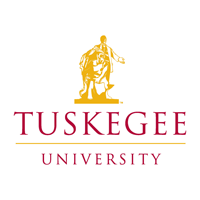Here is this week’s news of grants or gifts to historically Black colleges and universities or for programs of particular interest to African Americans in higher education.
 Historically Black Southwestern Christian College in Terrell, Texas, received a $100,000 gift from the cast of the television series A Different World. The donation was a part of Ford’s Ultimate Homecoming Takeover initiative, which aims to improve programs of study at historically Black colleges and universities and to provide students with opportunities to further their education. The new gift will be added to a scholarship fund at the college.
Historically Black Southwestern Christian College in Terrell, Texas, received a $100,000 gift from the cast of the television series A Different World. The donation was a part of Ford’s Ultimate Homecoming Takeover initiative, which aims to improve programs of study at historically Black colleges and universities and to provide students with opportunities to further their education. The new gift will be added to a scholarship fund at the college.
 The Institute of Gerontology at Wayne State University in Detroit in partnership with the Institute of Social Research at the University of Michigan and the College of Human Medicine at Michigan State University, received a $3.5 million grant renewal from the National Institutes of Health’s National Institute on Aging to extend the Michigan Center for Urban African American Aging Research (MCUAAAR). The center investigates causes of why African Americans have higher rates of diabetes, stroke, and heart disease than Whites and researches ways to eliminate this racial disparity. Over the past 25 years, the MCUAAAR has maintained a database of about 1,300 African American research volunteers in the Detroit area, which is an important achievement considering African Americans have been long underrepresented in research settings. Additionally, the MCUAAAR has trained over 60 pilot scholars, two-thirds of whom are now tenured professors.
The Institute of Gerontology at Wayne State University in Detroit in partnership with the Institute of Social Research at the University of Michigan and the College of Human Medicine at Michigan State University, received a $3.5 million grant renewal from the National Institutes of Health’s National Institute on Aging to extend the Michigan Center for Urban African American Aging Research (MCUAAAR). The center investigates causes of why African Americans have higher rates of diabetes, stroke, and heart disease than Whites and researches ways to eliminate this racial disparity. Over the past 25 years, the MCUAAAR has maintained a database of about 1,300 African American research volunteers in the Detroit area, which is an important achievement considering African Americans have been long underrepresented in research settings. Additionally, the MCUAAAR has trained over 60 pilot scholars, two-thirds of whom are now tenured professors.
 Xavier University, the historically Black educational institution in New Orleans, has received a $465,000 grant from the Minority Business Development Agency of the U.S. Department of Commerce to fund the MBE Disaster Readiness Project. The initiative aims to disseminate pertinent information about disaster preparedness and about obtaining disaster related contracts to minority owned businesses in the United States, Puerto Rico, and the U.S. Virgin Islands.
Xavier University, the historically Black educational institution in New Orleans, has received a $465,000 grant from the Minority Business Development Agency of the U.S. Department of Commerce to fund the MBE Disaster Readiness Project. The initiative aims to disseminate pertinent information about disaster preparedness and about obtaining disaster related contracts to minority owned businesses in the United States, Puerto Rico, and the U.S. Virgin Islands.


